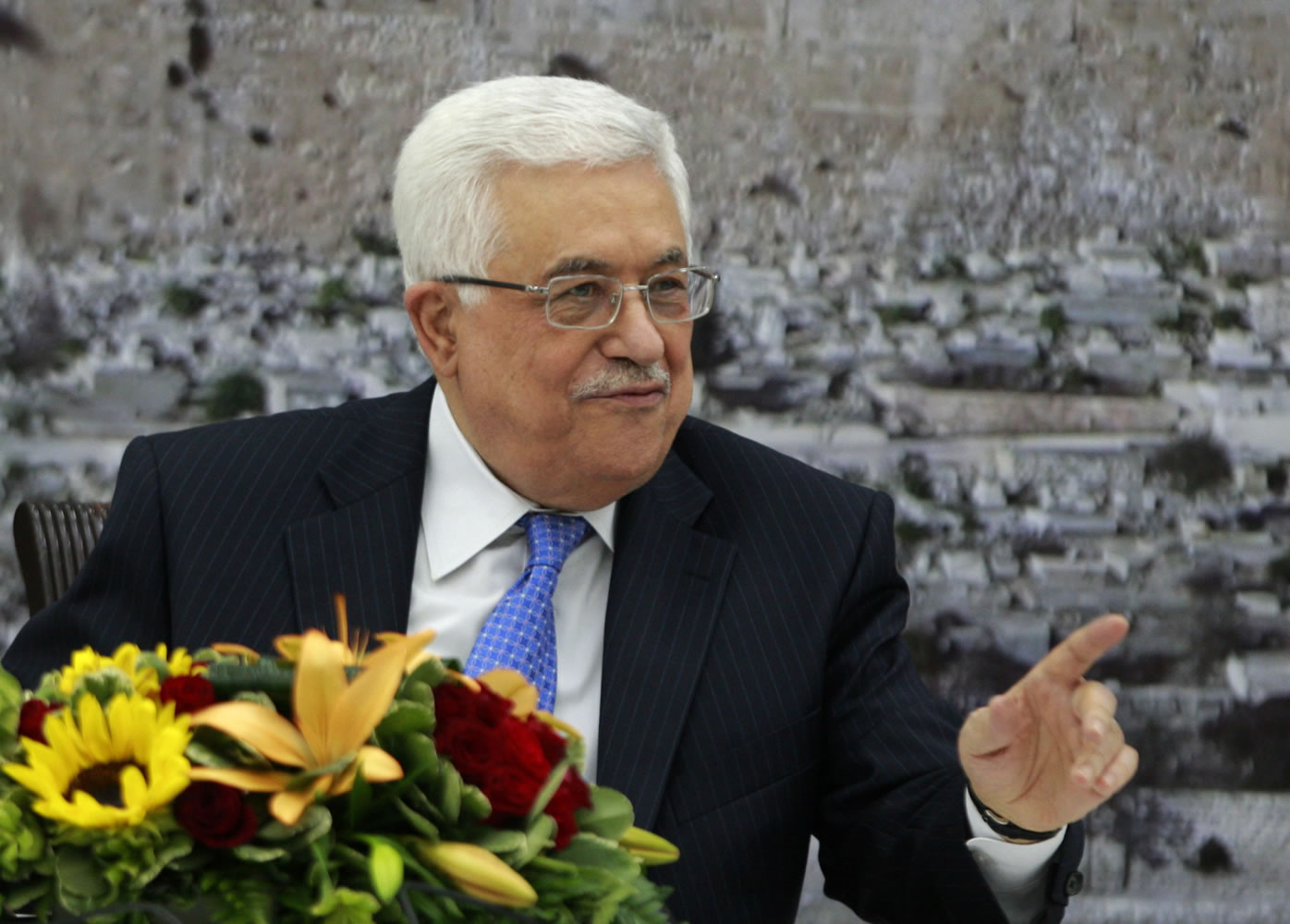RAMALLAH, West Bank — A high-level meeting of senior Palestinian leaders called to discuss U.S. Secretary of State John Kerry’s latest peace proposal ended without a decision on Thursday, casting a cloud of uncertainty over months of American mediation efforts.
Palestinian President Mahmoud Abbas convened Thursday’s gathering after a lengthy meeting with Kerry earlier in the week. While Kerry has not publicized details of his plan, the Arab League’s decision Wednesday to endorse his proposal raised speculation that the Palestinians would agree. Abbas traditionally has sought the blessing of his Arab brethren before making any major diplomatic initiative.
After the meeting, participants gave mixed accounts and said many potential obstacles lay ahead. A committee headed by Yasser Abed Rabbo, a top aide to Abbas, was set to meet later Thursday for more discussions.
“There are currently no plans for an announcement on the resumption of negotiations,” Jen Psaki, a spokeswoman for Kerry, told reporters in neighboring Jordan. An Israeli Cabinet minister said no deal was imminent.
Kerry had originally been scheduled to leave the region Thursday but delayed his departure by a day to continue his efforts.
Kerry has been shuttling for months in search of a formula to allow resumption of talks after a nearly five-year break. Talks have been stalled since late 2008, with the status of Israeli settlements at the heart of the deadlock.
The Palestinians have demanded that Israel stop building in settlements in the West Bank and east Jerusalem, territories captured in the 1967 Mideast war that the Palestinians claim for a future state, before talks can resume. They also say Israel should agree that its pre-1967 lines should be the basis of a final border, with modifications reached through agreed “land swaps.”
Israeli Prime Minister Benjamin Netanyahu has rejected the Palestinian demands, saying talks should begin without preconditions.
Some of the participants at Thursday’s meeting described Abbas as upbeat and leaning toward accepting Kerry’s proposals. Others said the plan falls short of what the Palestinians want.
“What was proposed by Secretary Kerry is vague and doesn’t meet the Palestinian demands,” said Wasel Abu Yussef, a member of the Palestine Liberation Organization’s executive committee who was in the meeting. “The American administration is committed to the two-state solution on the basis of the 1967 borders with agreed-upon swaps. But it doesn’t have Israeli acceptance for this.”
Ahmed Majdalani, another executive committee member, said Kerry has proposed holding talks for six to nine months focusing on the key issues of borders and security arrangements.
He said Kerry would endorse the 1967 lines as the starting point of negotiations, and assured the Palestinians that Israel would free some 350 prisoners gradually in the coming months. The prisoners would include some 100 men that Israel convicted of crimes committed before interim peace accords were signed in 1993. Israel has balked at freeing these prisoners in the past because many were convicted in deadly attacks.
Although the plan does not include a settlement freeze, it was not clear whether Israel would accept any reference to the 1967 lines.
Israeli Cabinet minister Yair Lapid said it was “too early to say” whether Kerry had found a formula for talks.
“Secretary Kerry has done a tremendous job in trying to put both sides together,” he told The Associated Press. “Of course Israel is more than willing and has expressed its agreement to go back to the negotiation table, but apparently it’s going to take a little more time.”
While Israel has balked at Palestinian demands, the international community has largely rallied behind the Palestinian position on borders and Jewish settlements.
In a show of displeasure over the settlements, the European Union announced this week it would stop providing research and cooperation grants to Israeli entities that operate in the occupied territories. Israeli leaders condemned the decision.
On Thursday, Israeli President Shimon Peres urged the EU to reconsider the ban, saying it could undermine Kerry’s efforts.
Peres urged the EU to “give priority to peace” and warned the ban “could cause another crisis.”



